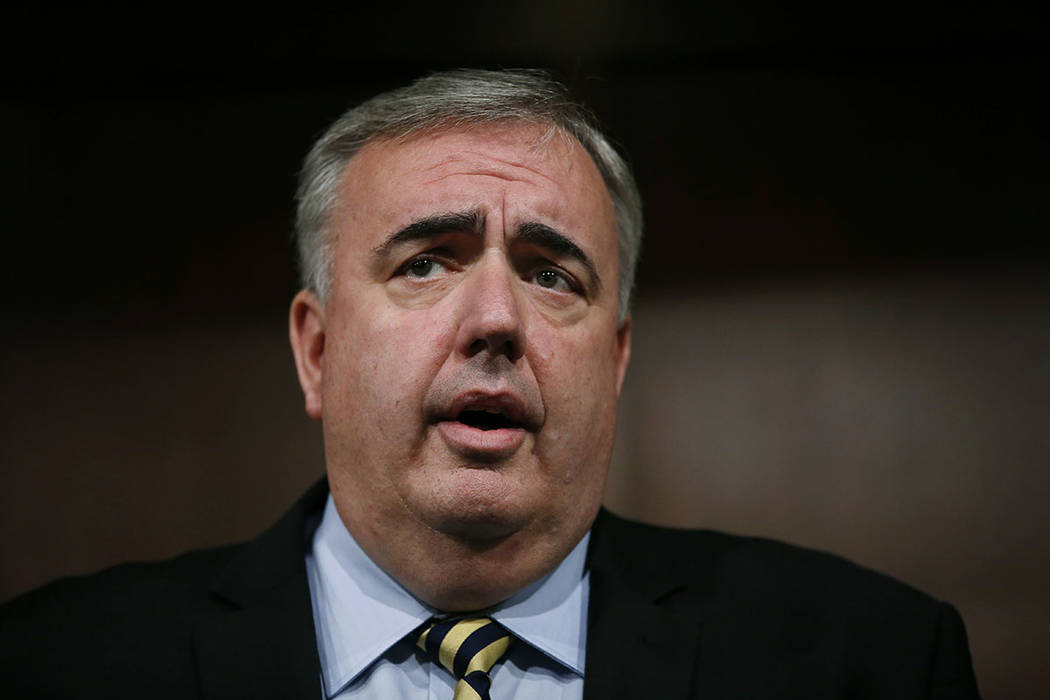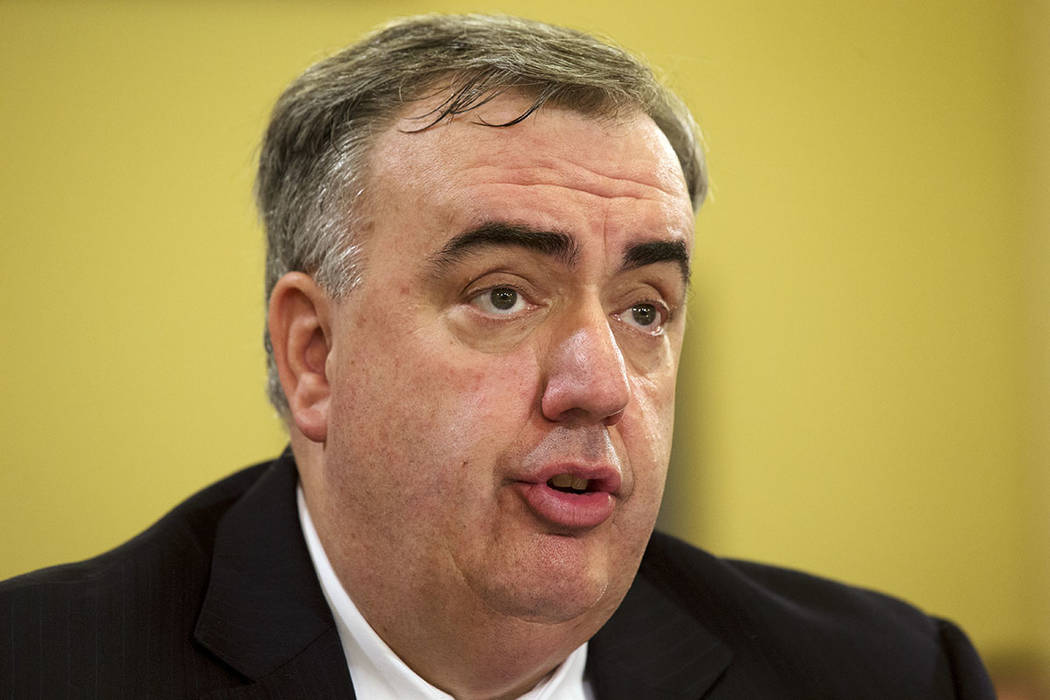Ex-Boston police commissioner relates to Las Vegas shootings
Edward Davis sees a lot of “Boston Strong” in Southern Nevada.
Davis, the former commissioner that led the Boston Police Department during the 2013 Boston Marathon bombings that killed three people and hurt hundreds of others, was a last-minute surprise speaker at the Tuesday opening of the 17th annual Global Gaming Expo at the Sands Expo and Convention Center.
About 26,000 people are in Las Vegas for the three-day event that includes presentations on gaming issues and a trade show with thousands of slot machines and devices that will appear on casino floors in the years ahead.
It’s not open to the public.
American Gaming Association President and CEO Geoff Freeman tore up his planned “state of the industry” speech in favor of Davis, who agreed in June to help the association lobby for repeal of the Professional and Amateur Sports Protection Act that could lead the way to the legalization of sports wagering nationwide.
Scanner chatter
Davis said he was awakened in his hotel room Sunday night when he heard police activity on the Strip and he grabbed his police scanner to listen in on the chatter.
“It brought back those first few minutes after the Boston bombing,” Davis said in his deep baritone New England-accented voice. “It’s chaotic, it’s frenetic, there’s a lot going on and people are trying to make things safe and to attack the attacker.”
Davis said he could tell the scene at the grounds of the Route 91 Harvest Country Music Festival was similar to what he witnessed near the finish line of one of competitive running’s iconic events.
“What really struck me was the fear and chaos, how people were running away and didn’t know which way to go, unsure of where the threat was,” he said. “That’s a very, very difficult thing to deal with and it’s exactly what we saw at the marathon. People dropped things on the race course, ran away and all of those things they dropped had to be cleared by our bomb squads because we thought there were more devices on the ground.”
Training showed
Davis said it was clear police had trained for the possibility of a crisis.
“That was part of a plan. That plan was put in place in the years after 9-11 and it’s been practiced over and over again,” Davis said. “The Henderson police know exactly where to go. The Nevada state police know exactly where to go. The Las Vegas Metropolitan Police were clearly in charge and there’s something called the National Incident Management System that allows us to fall in under the leadership that’s created and do the job that needs to be done. They need to go and neutralize that suspect, they pull the first team of five or six officers together and they basically charge the position. They find out where the shooter is and they go to contact, which is what we call it.”
Davis said his Boston experience tells him that there is more misery ahead as police officers and people who attended the concert deal with everything they saw, heard and felt Sunday night.
PTSD ahead
“My officers had experienced severe trauma, PTSD (post-traumatic stress disorder). It started to manifest itself in the hours after the incident,” he said.
“I called each officer that had done CPR or put tourniquets on people and I knew immediately upon talking to some of them. Even though they’re cops, even though they see trauma all the time, this was a battlefield scene and that’s exactly what’s happened here in Las Vegas. These are battlefield injuries and it’s affected not just public safety people who will be dealing with trauma and PTSD, but the citizens who were out there, the great men and women who came to help their fellow citizens and dragged them away from the shooting and provided first aid. People have to deal with this afterwards.”
But in his short time in Las Vegas, Davis said he recognizes characteristics of “Boston Strong” in the people of Southern Nevada.
“People are afraid,” Davis told the crowd of about 1,000 that gathered for the opening keynote. “They’re afraid across the country and I saw that after Boston. To put that back together, to make the community right again, requires leadership on the part of public officials, it requires preparation and planning for what may happen in the future.
“Terrorism and crisis management is an iterative process, we learn from it,” he said. “So there will be changes to the way we live our lives as a result of this incident happening. The security people here in these hotels along with the police will do all that work and make sure we’re safe in the future. But it requires a lot of work. It requires that mentality that we call ‘Boston Strong.’ I see it here in Las Vegas. This is Las Vegas Strong.”
Moment of silence
Before introducing Davis, Freeman led a moment of silence in honor of the victims.
“We gather quite obviously in the wake of a despicable and senseless event,” Freeman said as he opened the show. “While we sit here, all of us safe, hundreds of others are recovering or battling for their lives or are in mourning.”
Freeman said he was thankful to first responders, medical professionals, the operators on the Strip and their “incredible implementation of security plans” and encouraged AGA members to donate to funds that have been established to help the victims.
“It’s that gratitude that keeps us all going,” he said.
Contact Richard N. Velotta at rvelotta@reviewjournal.com or 702-477-3893. Follow @RickVelotta on Twitter.























